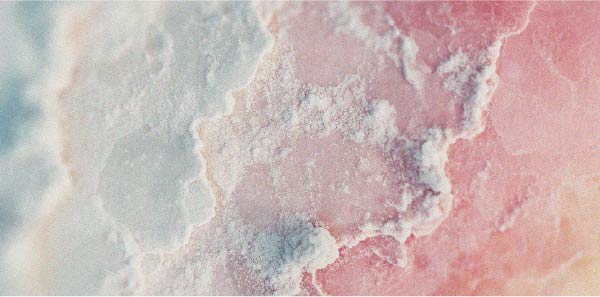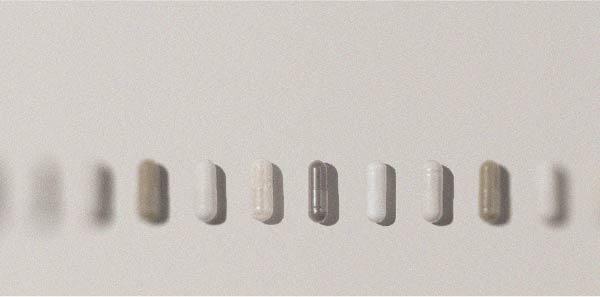4 dietary supplements to take when breastfeeding
Breastfeeding can be a magical experience for many young mums. Appropriate supplementation can provide valuable support.

The benefits of supplementation for breastfeeding
In order for breastfeeding to be a stress-free experience, a new mother needs to have a plentiful supply of milk. What’s more, this milk needs to be rich enough to ensure her baby is getting the best possible nourishment.
Tiredness, combined with an insufficiently balanced diet, may deplete a mother’s milk and make feeding problematic. In such cases, natural supplements can be invaluable in helping a new mum provide the maximum nutritional benefit to her baby.
DHA (omega-3) improves the baby’s cognitive function
Omega-3 are essential fatty acids known for their ability to regulate the body’s fat levels. One such omega-3 is DHA, recognized for improving cognitive function and visual acuity in breastfed babies (1).
Omega-3 are naturally present in oily fish, but new mothers can also obtain them direct from fish oil supplements (such as Super Omega 3 which has particularly good bioavailability). For optimal digestibility, they are best taken with food.
Iodine, to prevent deficiency in both mother and baby
Iodine supplements can be recommended in cases of iodine deficiency. A lack of iodine poses a risk of hypothyroidism – insufficient production of hormones by the thyroid gland – which can potentially retard the baby’s growth and impair its nervous and mental function. It may even result in the baby having a lower than average IQ (2).
This hypothyroidism risk is easily addressed by taking an iodine supplement. Ideally, opt for a pure, natural product such as Natural Iodine.
According to tradition, milk thistle stimulates lactation
Milk thistle is a wild plant rich in silymarin, a powerful flavonoid with multiple benefits for health. In particular, it plays a significant role in the liver and digestive system.
Traditionally, silymarin is also considered a ‘galactogen’. Herbalists believe it can stimulate lactation, boosting a mother’s milk supply. Note, however, that while studies have pointed to silymarin having such as a property (3), this has yet to be scientifically proven
.Silymarin is readily available as a nutritional supplement (for example Silyplus).
Calcium and vitamin D to restore bone mass in new mothers
During pregnancy, women suffer a loss of bone density: they need more calcium once the baby is born. In addition, a young mother’s calcium levels may decrease during breastfeeding because significant amounts are passed to the baby via her breastmilk. Supplementing with calcium is therefore a sensible precaution (Calcium Orotate).
It’s also wise to take a vitamin D supplement (4) at the same time, such as Vitamin D3 5000 IU. Women who have just given birth are actually often deficient in vitamin D yet it’s important for ensuring effective absorption of calcium by bones.
Breastfeeding is a special time for a mother and her baby. A balanced diet, with a wide variety of healthy foods, will help optimise the experience. Carefully-chosen, natural supplements can also offer significant support to young mums in giving their babies the best possible start. Be sure, however, to check with your doctor before taking any medicine or supplement during pregnancy and breastfeeding.
References
- Actualisation des apports nutritionnels conseillés pour les acides gras. ANSES, 2011. Consulté en mars 2020.
- La supplémentation en iode pour les femmes avant, pendant ou après la grossesse, Cochrane. Mis à jour en mars 2017. Consulté en mars 2020.
- Pierro, Francesco Di, Alberto Callegari, Domenico Carotenuto and Marco Mollo Tapia. “Clinical efficacy, safety and tolerability of BIO-C (micronized Silymarin) as a galactagogue.” Acta bio-medica : Atenei Parmensis 79 3 (2008): 205-10.
- Laura A. Basile, Sarah N. Taylor, Carol L. Wagner, Ron L. Horst, and Bruce W. Hollis.The Effect of High-Dose Vitamin D Supplementation on Serum Vitamin D Levels and Milk Calcium Concentration in Lactating Women and Their Infants. Breastfeeding Medicine.Mar 2006.27-35.
Keywords
2 Days
great products and prices
great products and prices
Marie
7 Days
Easy to navigate site
Easy to navigate site, had what I was searching for, good price. easy order-check out
James Tucker
14 Days
My skin is clearing up nicely!
Pretty good for my skin so far.
Christian
16 Days
The new packaging is excellent
The new packaging is excellent - finally! No more squashed boxes and torn envelopes.
GORAN
17 Days
Great Product
Great Product
Larry Garrett
21 Days
Quick shipping
Quick shipping; good price. No issues!
Mary McCarty
22 Days
Thr product is very good and is helping…
Thr product is very good and is helping me on my health. Then is always on time
LUGO Luz
25 Days
Buying was fine
Buying was fine. I had problems with the website not recognizing my login info, and had to call to get it fixed. Other than that, everything was good.
David S. Clark
25 Days
Your super maca and super ginseng are…phenomenal
Your super maca and super ginseng are phenomenal supplements that compliment each other when taking them together. Fantastic feeling of well-being and lots of mid day energy without the crash.
Keith Mason
28 Days
I have had amazing results with every…
I have had amazing results with every supplement I've purchased. I am extremely satisfied with this company
kirstin Torres
28 Days
Fine products
Fine products . They are on the leading edge of online supplements. The only issue -so far-is they sometime run out of subscription items.
Jason Argos
31 Days
The ordering process is very user…
The ordering process is very user friendly and the products always come in a timely manner.
CARTER Rhonda
32 Days
The price for Dr
The price for Dr. Pero's AC-11 is reasonable and in line with his views. (my former colleague). Keep it pure.
CAMPBELL Clayton
35 Days
Right on every time.
Right on every time.
Arthur Nicholas
37 Days
They are cheaper than everyone else and…
They are cheaper than everyone else and the shipping was fast. Great company.
Patricia Adams




